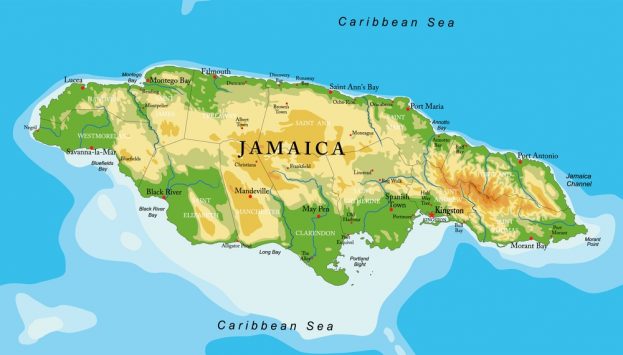
Jamaica this year is 58. The journey to this milestone was a hard one but, in the end, independence was achieved. On August 6, 1962, Jamaica waved goodbye to the centuries of formal bondage which entailed that this island in the Caribbean was a resource colony for an even larger imperialist island in Europe. The outward trappings of colonialism were taken down, never to be seen again (unless the monarch visits) and were replaced with more suitable indigenous ones.
Sadly, however, Jamaica remains a neo-colony, tied to a single source of revenue (tourism) and seen as an area of relative resource extraction and labour. In the near 60 years of independence, the Jamaican State and people now find ourselves back in the position of the colony, unable to feed, finance, clothe or even medicate our people without the aid and input from the new colonial master America and its viceroy in the form of the International Monetary Fund (IMF).
It is at this point that we must ask ourselves how did we get here and how is it that we can get out of this neo-colonial trap?
How we got here is simple even if it does take a while to explain in-depth. The short version of how we got here is as follows: The Jamaican capitalist class, rather than invest in long-term ideas which benefit the nation, engaged in short-termism so typified by the tourist and sugar industry. These people, along with the barons of the EX-IM sector, have ensured that Jamaica remains underdeveloped as their initiatives receive the bulk of the financing (they have relatively immediate returns) while industries and manufacturers go bust or are unable to even get off the ground.
The above can be used to explain most but not all of why we are in this situation. We have politicians who encourage this behaviour, we have bankers who finance these short-term endeavours and we have a middle class which blindly goes along for the ride consuming foreign goods at the expense of local goods and who cheer when they hear of a new hotel opening.
This total lack of nationalism has infected not only our capitalist class but also the political and middle classes of this country. And it is this which I feel needs to be addressed if Jamaica is to have any hope of shrugging off the yoke of neo-colonialism and moving away from our prescribed position of poverty which sees us act as a home for mineral extraction, tourists and a dying monocrop.
We have no hope of extracting ourselves from this long-term predicament unless we fully embrace nationalism, and more importantly an anti-imperialist nationalism. A nationalism which has under one umbrella the industrial/finance capitalists, the proletariat, the peasants, and the managerial class (lawyers etc) is the first step and only way we can attain true independence and maintain it.
Such an idea is not to be scoffed at and relegated to the realms of fantasy. Such ideas and methods have been applied in scores of nations in a successful fashion, a few examples in recent times being Singapore, China, Cuba, and Venezuela. Such an idea and method were put to paper by Mao during the Chinese Civil War and the early days of victory by the CPC.
Such a revolutionary move would see us address almost overnight issues we have been combating and talking about since universal adult suffrage. These may range from issues faced when interacting with the State — bribery in high government offices, the non-payment of taxes and utilities by citizens and companies, the anaemic manufacturing industry and the diversification of agriculture to that of self-sufficiency. All this could be successfully addressed if the four blocs of the nation unite under the banner of anti-imperialism and work in the same direction.
Such an action would not be revolutionary simply for its anti-imperialism. The independence movement was, after all, born from such a union. No, it would be revolutionary because it would be both anti-imperialist and give a lead seat at the table to those who make up the peasant class and proletariat. Such a move would be of the utmost necessity and a natural step because the anti-imperialist front (that is buying local and eschewing foreign products) can only be done successfully by those oppressed classes and they will only offer their support if they have the deciding seat at the table.
Such a unity bloc could seriously tackle food security, ensuring that local produce gets primacy of place and even if subsidies are needed, to ensure its sustainability. The same method could then be applied to manufactured items, maybe even rising to the level of banning the importation and sale of foreign goods which compete with local goods.
More importantly, this united front would allow the capitalist and industrial classes to take these risks (and there are risks) because the nation (proletariat and peasants) would be endorsing and signing off on such national moves, so sanctions, though tough, would be manageable with the distribution of goods taking place on a priority of needs (see Cuba’s special period).
This is a tall order. If we are frank we can admit that the proletariat, peasants, managerial class and capitalist class have, for the most part, bought both the neo-colonial and neo-liberal line which dictates that our national place be poverty. This pandemic may have changed the thinking in the minds of some, if only temporarily, and must be exploited to its full potential. Initiatives such as the Azan agro-park, though in the capitalist mode, are of the nationalist perspective and need to be encouraged as well as others like it.
The pandemic and the ensuing shortages and, in some cases, halting of certain items which we have come to rely on via importation, have got us honestly thinking and talking about import substitution. With certain products getting more expensive to import or simply purchase, and the burdensome delivery time lag, people are discussing the possibilities of manufacturing on a local level. This can even be seen in the banks and other finance sectors, which because they are starved of their usual short-term clients (due to COVID) are not only providing accounts to people who last year would have been scorned but are also providing loans for interesting long-term projects.
This proto nationalism has even crept into the halls of government and civic groups. We see serious discussions relating to how to fund and implement a true social security and unemployment fund. It must be nurtured and encouraged. We must be showing in plain language how it is to be done and why it is so important. We must guard against the natural tendency which will arise when normality is restored on the international scene, that is relying on the US, Europe, and Asia for our basic needs. If we are truly after independence and the prosperity which it offers, then a unity of these four blocs is needed, a common goal and understanding of how it is to be achieved, distributed (wealth) and guarded (ruled) over.
This can be done. We have done the first half in the past and there is no rhyme or reason why we can’t do it again and this time see it to its completion. Our comprador leaders and industrialists must be challenged. The belief in the long-discredited trickledown theory must be attacked with alternatives offered.
The long-standing belief that everything foreign must be better must be disposed of, and the bias we have towards giving the industrialists, financiers (with a smattering of the managerial class) the power of life and death and total control of the State must be reversed and the lions’ share of the power must be with the workers in the fields and factories. This marriage and formation of a new society is the only way we can begin fixing our issues, dealing with the challenges of yesterday, today, and tomorrow.




One thought on “To Shrug Off The Yoke Of Neo-Colonialism”